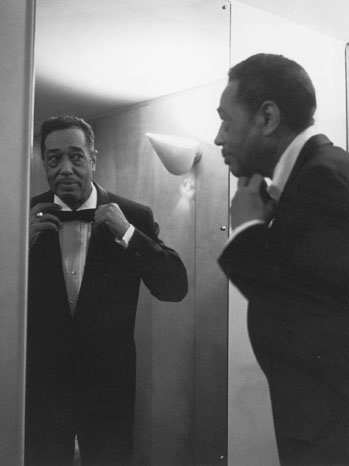Donald Wolfit and Hildegarde Knef in a scene from Svengali, the 1954 film version of George Du Maurier’s novel, written and directed by Noel Langley:
(This is the latest in a series of arts-related videos that appear in this space each Monday and Wednesday.)
Archives for 2013
TT: Almanac
“The author should shut his mouth when his work opens its mouth.”
Friedrich Nietzsche, Mixed Opinions and Maxims (courtesy of Alex Ross)
TT: “Thus I turn my back”
Today’s Wall Street Journal drama column is devoted in its entirety to a Washington show, the Shakespeare Theatre Company’s new production of Coriolanus. Here’s a excerpt.
* * *
 Why has “Coriolanus” never been popular? It’s only been mounted once on Broadway–in 1938. The last time that I reviewed a production in this space was eight years ago. Yet connoisseurs need no reminding of the immense stature of Shakespeare’s most explicitly political play. T.S. Eliot ranked “Coriolanus” above “Hamlet,” calling it “Shakespeare’s most assured artistic success.” A man I know who used to work for one of America’s best-known politicians claims that it’s one of only two pieces of literary art that tells the whole truth about politics (the other, he says, is “All the King’s Men”). And if you should be lucky enough to see Shakespeare Theatre Company’s new production, directed by David Muse and featuring a towering performance by Patrick Page, you’ll come away wondering why it doesn’t get done regularly by every drama company in America….
Why has “Coriolanus” never been popular? It’s only been mounted once on Broadway–in 1938. The last time that I reviewed a production in this space was eight years ago. Yet connoisseurs need no reminding of the immense stature of Shakespeare’s most explicitly political play. T.S. Eliot ranked “Coriolanus” above “Hamlet,” calling it “Shakespeare’s most assured artistic success.” A man I know who used to work for one of America’s best-known politicians claims that it’s one of only two pieces of literary art that tells the whole truth about politics (the other, he says, is “All the King’s Men”). And if you should be lucky enough to see Shakespeare Theatre Company’s new production, directed by David Muse and featuring a towering performance by Patrick Page, you’ll come away wondering why it doesn’t get done regularly by every drama company in America….
Mr. Muse has opted for a modified modern-dress staging (“suits and swords,” in his neat phrase) that eschews cheap political point-making. He’s gunning for bigger game. He understands that “Coriolanus” is not about any particular politician, or any particular war: Its real subject is pride. Is there room in a democracy for an aristocrat like Coriolanus who refuses to play the popularity game? Or is it his duty to don the hypocrite’s mask in order to serve the greater good? Shakespeare leaves it to us to decide, and so does Mr. Muse.
All of which brings us to Mr. Page, who is known on Broadway as a specialist in villainy. In recent seasons he’s done the dirty in “Cyrano de Bergerac,” “A Man for All Seasons” and “Spider-Man: Turn Off the Dark,” in which he played, of all things, the Green Goblin. But he’s no second banana: Mr. Page is one of this country’s leading classical actors, and in “Coriolanus” he shows you everything he’s got, starting with a resplendent bass voice so well placed that he can fill the theater with a whisper, then make your seat shake. He is, in the very best sense of the word, an old-fashioned actor who has no fear of the grand gesture….
* * *
Read the whole thing here.
TT: Almanac
“Of all the cants that are canted in this world, though the cant of hypocrites may be the worst, the cant of criticism is the most tormenting.”
Laurence Sterne, Tristram Shandy
TT: In the mirror
Gotham Books sent me the “first-pass pages” of Duke: A Life of Duke Ellington yesterday afternoon. Translated into English, that means a two-inch stack of photocopied pages containing the typeset text of Duke, fully designed and copyedited but as yet uncorrected by me. You may have heard these pages referred to as “page proofs,” a term that I’m still in the habit of using.
 No matter how many books you’ve seen through the press, you always feel a surge of excitement when you get your first look at a set of your own page proofs. (I actually got weak in the knees when I opened the envelope.) Until that moment, you don’t know what the text of your book will look like to the people who read it. Then, in an instant, it becomes real–and fresh.
No matter how many books you’ve seen through the press, you always feel a surge of excitement when you get your first look at a set of your own page proofs. (I actually got weak in the knees when I opened the envelope.) Until that moment, you don’t know what the text of your book will look like to the people who read it. Then, in an instant, it becomes real–and fresh.
In my case, I spent so much time painstakingly editing and polishing the manuscript of Duke that it eventually went dead on me: I could still follow the text sentence by sentence, but I lost my ability to hear how it sounded. Now that the book is finally set in type, it’s come back to life again.
I stayed up late last night reading the page proofs of Duke, and I liked what I read. Needless to say, it helped that they look so good–Elke Sigal’s typographical design is flat-out gorgeous, and I’m no less happy with the illustrations–but I’ll admit to being equally pleased with the text, at least for now.
To be sure, I doubt that Ellington himself would have cared for the book. He was far too secretive to appreciate a biography that told the truth about his complicated life. As I wrote in the prologue to Duke:
The rage, the humiliation, the unbridled sensuality: All were kept far from prying eyes. His fans saw only what he wished them to see, and nothing more. So did his colleagues. “I think all the musicians should get together one certain day and get down on their knees and thank Duke,” said Miles Davis. Yet to Ellington’s own musicians, he was a riddle without an answer, an unknowable man who hid behind a high wall of ornate utterances and flowery compliments that grew higher as he grew older.
Still, I like to think that Ellington might at least have appreciated the fact that I took his life and work with the utmost seriousness, and tried to write about them in a way that mirrors, however dimly, the beauty of his music.
Can I make Duke even better? Maybe–but not for long. I have two weeks to make my final corrections to the text. After that, I’m done. It’s time.
UPDATE: I started correcting the page proofs this afternoon, and the first thing I saw was a mixed metaphor…on the third page. It’s going to be a long day.
TT: So you want to see a show?
Here’s my list of recommended Broadway, off-Broadway, and out-of-town shows, updated weekly. In all cases, I gave these shows favorable reviews (if sometimes qualifiedly so) in The Wall Street Journal when they opened. For more information, click on the title.
BROADWAY:
• Annie (musical, G, reviewed here)
• Matilda (musical, G, all performances sold out last week, reviewed here)
• The Nance (play with music, PG-13, extended through Aug. 11, reviewed here)
• Once (musical, G/PG-13, most performances sold out last week, reviewed here)
• The Trip to Bountiful (drama, G, extended through Sept. 1, reviewed here)
• Vanya and Sonia and Masha and Spike (comedy, PG-13, remounting of off-Broadway production, extended through July 28, original production reviewed here)
OFF BROADWAY:
• Avenue Q (musical, R, adult subject matter and one show-stopping scene of puppet-on-puppet sex, reviewed here)
• The Fantasticks (musical, G, suitable for children capable of enjoying a love story, reviewed here)
CLOSING NEXT WEEK OFF BROADWAY:
• Women of Will (Shakespearean lecture-recital, G/PG-13, closes May 26, reviewed here)
CLOSING NEXT WEEK IN CHICAGO:
• Pal Joey (musical, PG-13, closing May 26, reviewed here)
CLOSING SUNDAY IN CHICAGO:
• Woman in Mind (serious comedy, PG-13, reviewed here)
CLOSING SUNDAY IN WESTPORT, CONN.:
• The Dining Room (serious comedy, PG-13, reviewed here)
CLOSING SUNDAY ON BROADWAY:
• Orphans (drama, PG-13, reviewed here)
TT: Almanac
“Criticism is a study by which men grow important and formidable at very small expense.”
Samuel Johnson, The Idler (June 9, 1759)
AUTOBIOGRAPHY
Carol Burnett, One More Time. The TV comedienne’s 1986 memoir of her impoverished childhood and youth, a painful story (her parents were alcoholics, her grandmother a bizarre eccentric) told simply and without a trace of self-pity. Page after page of One More Time contains stingingly plain-spoken sentences that leap off the page and embed themselves in the memory: “The war was one giant movie we all were starring in.” “He was sick in a charity hospital.” “Those were the times they didn’t fight.” “The worst was Christmas.” Who knew, or even suspected, that Burnett could write so well? Not me (TT).
